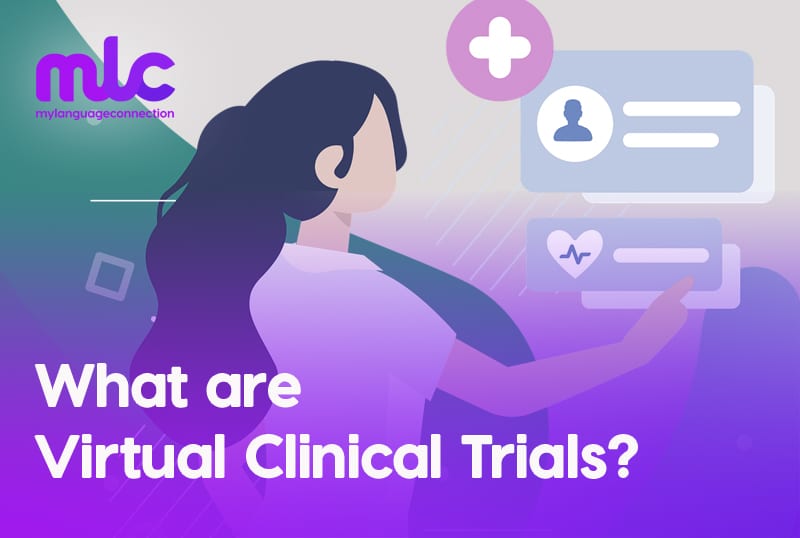Virtual clinical trials is the new standard of conducting clinical research that leverages the power of technology and social apps.
Clinical trials are the cornerstone of the medical industry. It is crucial in the development of new drugs and gathering scientific evidence of their efficacy. This process must be handled with the utmost care and following strict regulations. However, the method of conducting clinical trials has changed rapidly over the past few years, and digital transformation has been the spark that has fuelled that change.
 Virtual Clinical Trials – What Are They?
Virtual Clinical Trials – What Are They?
Virtual clinical trials not far removed from traditional clinical trials. Instead, it is simply a modification of the traditional way of conducting these trials that rely on the use of technological tools rather than conducting them in a centralised site. This is also different from decentralised clinical trials, which can be a hybrid of the traditional and virtual models.
The conventional way of clinical trials would involve recruiting patients from medical clinics or hospital visits. Therefore, the target population for the trial is rather limited based on the geographical setting of the trial. On the other hand, a virtual clinical trial utilises a web-based platform and digital technologies. This greatly expands the reach potential of the trial so that eligible patients from all over the world can participate. The diversity of the participants in the study can impact its quality and the results since you can access a wider range in demographics, patient history, disease history, and geographic location.
Interested participants can fill out the form and provide their diagnosis to ensure eligibility for the participation in the virtual clinical trial. The medical consent form, along with the online questionnaires, must be duly filled before the trial can proceed.
 Virtual Clinical Trial vs Conventional Trials
Virtual Clinical Trial vs Conventional Trials
The most obvious difference of a virtual clinical trial from conventional ones is the reliance on patient-facing technology with the former. The clinical research companies are hoping that by tapping into technology, they will be able to access a wider pool of patients and sample for the trial. With that said, an improved patient recruitment approach and success rate is the main point of difference with a virtual clinical trial from the conventional ones.
The cost-efficiency of the virtual setting is another area where there is a significant difference with the two methods of conducting research studies. Instead of the clinical research being conducted in a centralised location, such as a laboratory or medical clinic, it can be done virtually and using remote technologies. In general, the costs of conducting the trials virtually is lower than the traditional costs involved.
As you will discover more of later on, there are plenty of benefits offered by conducting clinical trials virtually.
 Challenges of Virtual Clinical Trials
Challenges of Virtual Clinical Trials
There are many benefits offered by a virtual clinical trial. However, it does not come without its own set of challenges. It is important to bring awareness to these challenges to devise ways to overcome them and ensure success with this new method of research studies.
One of the primary challenges is the lack of data integration. While the access to data is not a problem given the access to that using technologies and devices, the problem lies in aggregating this data for analysis. It is also important that an additional step be incorporated to ensure that the quality of the data is reviewed to ensure that it is relevant to the overall goal of the study.
To add to the challenges involved with virtual clinical trials is the risk for compromised patient safety. Without direct personal contact with the staff conducting the study, there is a concern that patient needs will be neglected in the process. Moreover, it can also tarnish the quality of the data due to lack of proper reporting methods.
Finally, virtual clinical trials are still in their infancy. The lack of regulatory acceptance for this method within the pharmaceutical and medical industry could lead many to be concerned about the regulatory aspects of it. Digital adoption is still not as widely accepted as the proponents of this method would want.
Role of Remote Patient Monitoring
Given the challenges cited above, patients have a more important role to play in the success of virtual clinical trials. This is made possible with remote patient monitoring. Experts agree that this is the most critical element of clinical trials.
With remote patient monitoring, patients rely on various devices to promote virtual interaction. It will be used to assess patient behaviour, efficacy of pharmaceuticals, and the overall medical status of patients. This approach to monitoring of patients has expanded significantly in the digital era.
It has also brought about several benefits such as the following:
- Real-time tracking
- Improved patient engagement
- Higher patient recovery rates
- Risk analysis
- Reduced operational costs
 Is it The Future of Clinical Trials?
Is it The Future of Clinical Trials?
It’s too early to tell since virtual clinical trials are still in the early stages of adoption. It is important to identify and address the specific challenges for this kind of setup. There are clear advantages that will, hopefully, convince more pharmaceutical companies and sponsors to consider it not just as an alternative but as a new way of conducting clinical trials.
With more advancement in technologies available to the industry, one can only hope that it will deliver more value to the industry. The outlook for virtual clinical trials is definitely filled with promise.

